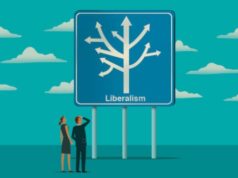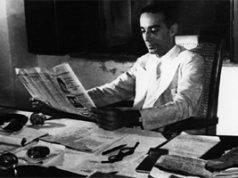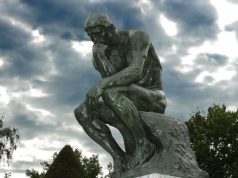Peace and love folks! Back to the 1970’s in the United States, people were doing nothing but smoking ganja, and eventually protesting against the Vietnam war. The sweet flavor of freedom of expression… Meanwhile in China, Mao Zedong well alive, the Chinese society was undergoing major changes through the Cultural Revolution (1966-1976), causing death to millions of people. Prominent intellectuals were purged, ideas aligned to Maoism by using propaganda in order to put socialism back on track. Since then, intellectuals who do not support the Party’s dogma have been tracked, banished, put in jail or killed. For believers in freedom of expression and other civil rights, the newly chosen Nobel Peace Prize, Liu Xiaobo, earlier this month in Oslo would finally trigger a “great leap forward” towards more political liberty in China. Is it?
M. was telling me yesterday a very striking anecdote. In a discussion with some of her Chinese friends, the latter asked her if she knew any Chinese writer. Knowledgeable in literature, she said she enjoys reading Gao Xingjian. You know, the Nobel Prize winner in literature in 2000, the only Chinese dude who ever won it, now in exile in France. But her friends did not know him. Odd! Usually Chinese are so proud of their fellow men, especially when they win any kind of prizes. Remember the 2008 Olympics where China reveled in being the greatest nation in sports. What’s wrong with Gao Xingjian then? Well, his art has often been considered as subversive by the state and he was obliged to leave China in 1987 to avoid retaliation and clampdown. Then the government would use the media to tweak the public opinion. Same happened to Liu Xiaobo, suspected of “inciting subversion of the state power” in late 2009 and since imprisoned.
Liu Xiaobo, along with 350 Chinese intellectuals and human rights activists signed the Charter 08 in December 2008. This manifesto urges the Chinese government for changes and improvement in terms of human rights in PRC. Most of the 19 “demands” included in the document have been defended by classical liberals throughout the two last centuries (e.g. separation of powers, protection of property rights, freedom of expression). We can only extol this initiative. But being an opponent to the regime in China is like standing against the ideal of an “harmonious society” the government has promoted during the last decade. A quick look to the headlines in the main English speaking Chinese newspapers will suffice to prove that Liu Xiaobo is not seen as a hero, defender of human rights. In Global Times, October 9th: “2010 Nobel Prize a disgrace”. On October 18th, People’s Daily reported that: “The Nobel committee owes China an apology”, complaining that Liu did not deserve the Prize. Politicians are also upset by the award. The Foreign Ministry spokesman, Ma Zhaoxu said “Liu is a convicted criminal. Awarding the Nobel Prize to him is equivalent to encouraging crime.” Such stance is understandable from a political perspective. Indeed, it would otherwise put the stability of the regime at great risk. Therefore, raising awareness on the importance of defending basic rights among an indoctrinated population is a hard and convoluted job. In the meantime, the government always strikes back with the nationalistic rationale. In this regard, change is not for tomorrow.
Chinese also argued the Nobel committee should not interfere in China’s internal affairs. It seems quite bold to me. Back in September this year, China put pressure on Oslo to prevent Liu to be given the Prize. I’m not sure what kind of political gambit that is to complain about pressures but using the same mean in the first place. Sure, in the last three decades, the country has advanced social change and achieved high economic growth (the country is now ranking second in terms of GDP), a fairytale of rags to riches. Reforms have certainly helped in doing so. Nonetheless, we should recall Milton Friedman’s ‘Capitalism and Freedom’ here. Admittedly, political and economic freedom are entangled with each other. But more economic freedom would lower down the political power. In terms of economic freedom, China has still a long way to go. Since the government monopolizes the key sectors of the economy, it partly explains why the political power is still so strong. And power is difficult to give up…
Instead of continuously pointing out inherent issues with human rights in China (that job is greatly done by NGOs), the international community should help China in further opening up its economy (especially its banking sector). The freer it will become, the more chances Chinese citizens will have for political changes.
NB: Great thanks to M. for her wise help on this post.
Post Disclaimer
The opinions expressed in this essay are those of the authors. They do not purport to reflect the opinions or views of CCS.





